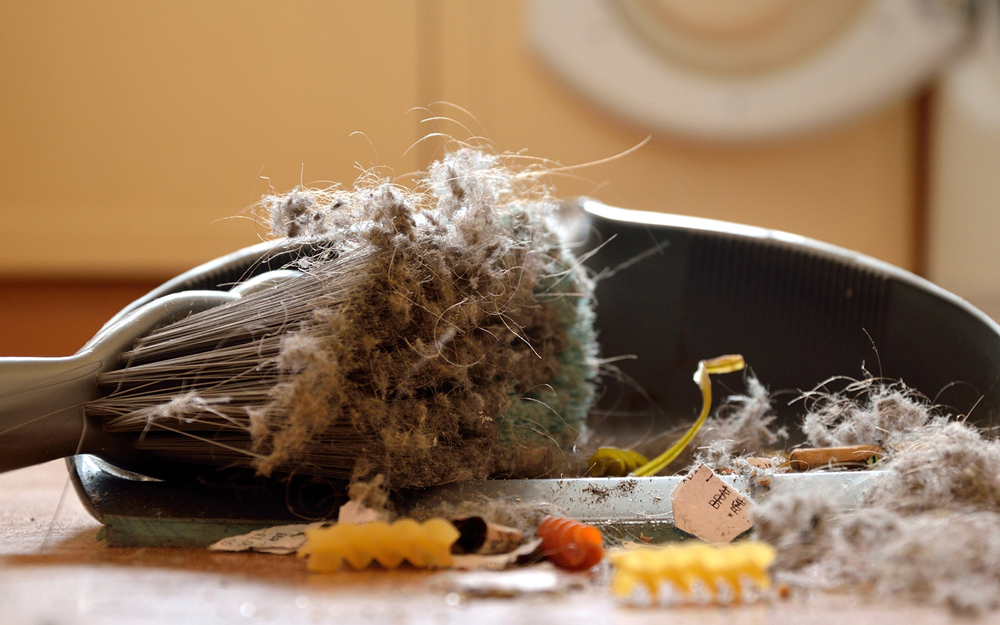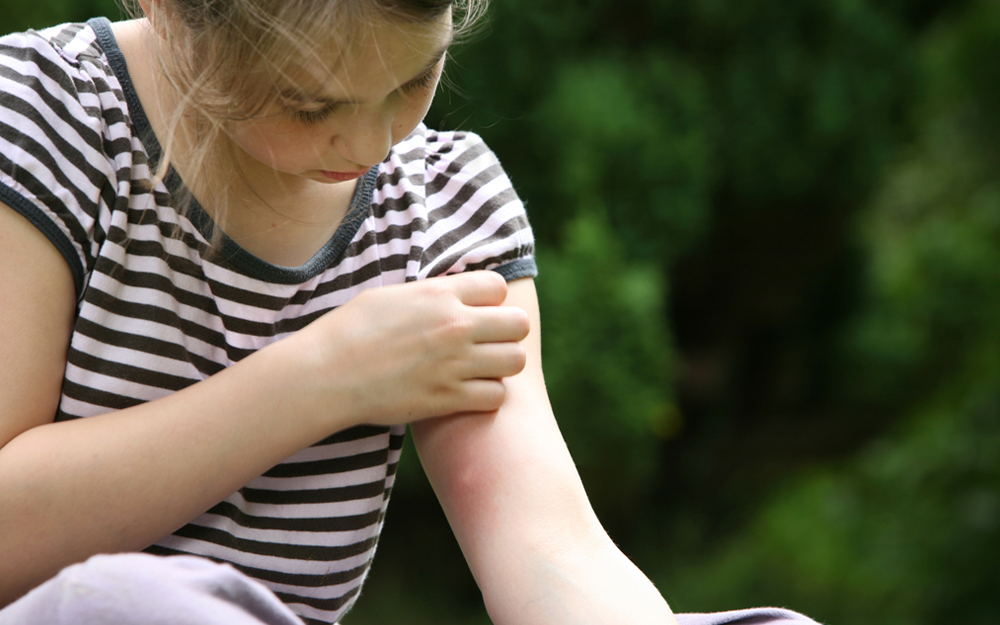Health Forecast: Handy Guide to Holiday Health
Date
November 10, 2025

Date
November 10, 2025
Medical providers featured in this article

In Brief
The Cedars-Sinai Health Forecast is your field guide to illnesses and other health challenges impacting our community. Our medical experts track the latest updates and share advice on staying healthy as we head toward the winter holidays and prepare for Southern California’s version of sweater weather.
Focus on Flu
Each autumn, healthcare professionals remind us of flu season’s imminent arrival—and of the importance of seeking out the latest influenza vaccine. This year, the alarm bells are ringing louder than usual.
“We typically base our predictions for how serious cases of flu might be on what we’re seeing in the Southern Hemisphere, and right now it looks like we’re in for a moderate-to-severe season,” said Sam Torbati, MD, co-chair of the Department of Emergency Medicine at Cedars-Sinai and the Levin/Gordon Chair in Emergency Medicine in honor of Joel M. Geiderman, MD. “The technologies behind the flu vaccine have been around for decades and are very safe, and getting the shot is an opportunity for each of us to do something that could save lives.”
Book your shot today: The flu vaccine takes about two weeks to reach peak effectiveness as our immune systems develop antibodies. Vaccinating sooner rather than later is ideal. “Particularly for high-risk individuals—the very young, older adults and people with chronic conditions—the time to do it is now,” Torbati said.
Combatting Congestion
Influenza is not the only respiratory virus on the rise. As the temperature drops and we spend more time indoors, cases of the common cold also tend to increase. Most often caused by rhinoviruses, colds typically result in symptoms such as nasal congestion, sneezing, sore throat, coughing, fatigue and mild body aches.
“There’s no vaccine for the common cold, but there are effective steps we can take to reduce our risk and recover faster,” said Ethan Youssefzadeh, DO, a family medicine doctor with Cedars-Sinai Medical Group. “Washing our hands regularly, especially after being in public places; avoiding touching our faces, particularly the eyes, nose and mouth; and keeping our distance from people who are sick are all critical strategies for stopping spread.”
Monitor your improvement: Youssefzadeh pointed out that rest and self-care are key for people who do catch a cold. “Most people recover within a week, but if symptoms persist or worsen, it’s wise to consult a healthcare provider to rule out other conditions,” he said.
Banish the Blues
Winter weather can influence our emotional health as profoundly as our physical wellbeing. Shorter, darker days and fewer opportunities to run and play outdoors can particularly affect children, for whom exercise is a core component of healthy development.
“Even here in L.A., where the weather is generally good, we see cases of kids with the ‘winter blues,’” said Joseph Sleiman, MD, a pediatrician at Cedars-Sinai Guerin Children’s. “Parents might notice their kids seem a little down and are more resistant than usual to going to school.”
Resist hibernation: “It can be tempting to remain sedentary, but being active, staying well hydrated and getting sun are all crucial during our rainy and cloudy seasons,” Sleiman said. “These things can help our mood tremendously.” For his patients who are 12 years old and above, he recommends a yearly depression screening, available as part of their routine annual care.
Preventing Pertussis
This time of year, young people are especially vulnerable to pertussis, also known as whooping cough. “We’re seeing more of it going around and are encouraging everyone to get caught up on their vaccines,” said Francesca Corley, MD, a pediatrician at Huntington Health, a Cedars-Sinai affiliate. “The primary series, known as DTaP, is usually given to children by the time they’re 4 years old, and children require a booster dose, called Tdap, at 10 or 11 years old.”
Steps to stop spread: Successful treatment for whooping cough requires antibiotics. If your children have a severe cough or if you have any concerns about potential exposure, check in with your pediatrician and make sure your children steer clear of other people until they have recuperated. “While they’re getting better, isolation is vital to mitigating the spread of the disease,” Corley said.
Vaccinations for Vacations
With winter weather comes holiday travel—a chance to hit the slopes, seek refuge on a tropical beach or even just gather with family and friends. If you’re headed someplace exotic and far-flung, said Michael Ben-Aderet, MD, an infectious disease specialist and associate medical director of Hospital Epidemiology at Cedars-Sinai, make sure to get good medical advice about local health risks and ways to avoid them.
Check in with an expert: “Getting appropriate vaccinations for your trip is the best way to mitigate risk and maximize enjoyment,” Ben-Aderet said. “I always recommend consulting a travel clinic for people going abroad.”
Safeguard Your Status
Seasonal celebrations—think office parties and New Year’s gatherings—add fun and festivity to the holiday calendar. For medical professionals, it can be an opportune time to remind patients to be proactive about standard health maintenance and prevention.
“People should have their cholesterol panels checked and make sure they’re up to date on their screenings for sexually transmitted infections (STIs), including rectal Pap tests for anyone who is over the age of 40 and has receptive anal sex,” said Rafi Petrosian, MD, a primary care provider with Cedars-Sinai Medical Group.
Find the best test: “Not all STI screenings are created equal, and that’s especially true for chlamydia and gonorrhea,” Petrosian said. “Some clinics might only give patients a urine test, but if they’re using other body parts for sex, those need to be tested with a swab. Being thorough is the name of the game.”
Deck the Halls, but Duck the Danger
For many of us, a true highlight of the holidays is getting ready for their arrival. But those preparations can sometimes be treacherous.
“It may sound simple, but ladder safety is really important,” said Nathaniel Spencer, MD, an emergency medicine doctor at Cedars-Sinai Marina Hospital. “Every year, we have people fall off ladders while hanging Christmas lights or putting up other decorations. There are better ways to spend the holidays than waiting in the ER!”
Climb with caution: “I strongly advise people against getting on a ladder, especially a tall one, without having a buddy there to make sure they’re being safe,” Spencer said. “Decorations on your house can be beautiful, but there’s no reason to endanger yourself. If the ladder is high, always have a spotter.”
Health Watchlist
Typhus: Guidance from the Los Angeles County Department of Public Health is urging residents to take precautions in the face of an increase in cases of flea-borne typhus. Incidence of the disease has been rising in L.A. County since 2010, but a record number of cases were identified in 2024—and, so far, 2025 is on track to exceed that.
“Preventive steps can help limit your exposure: things like treating your household pets for fleas and avoiding contact with stray animals,” said Jonathan Grein, MD, director of Hospital Epidemiology and infection-control officer for Cedars-Sinai. “Infected animals don’t generally show signs of illness, but people may develop symptoms such as chills, high fever and rash. Fortunately, typhus is treatable with antibiotics.”
Open Enrollment
Now is the time to sign up for or change your health insurance and other benefits. Learn more.
Frequently Asked Questions
When is Open Enrollment?
Now is the time to sign up for or change your health insurance and other benefits. Health Insurance Marketplace open enrollment is Nov. 1, 2025 to Jan. 15, 2026. Learn more.
When is flu season?
While flu season in the U.S. typically runs from October through March, California flu season peaks in January and February. The flu vaccine takes about two weeks to reach peak effectiveness as our immune systems develop antibodies. Vaccinating sooner rather than later is ideal, especially for high-risk individuals—the very young, older adults and people with chronic conditions.
How do I stay healthy when traveling during the holidays?
With winter weather comes holiday travel—a chance to hit the slopes, seek refuge on a tropical beach or even just gather with family and friends. If you’re headed someplace exotic and far-flung, said Michael Ben-Aderet, MD, an infectious disease specialist and associate medical director of Hospital Epidemiology at Cedars-Sinai, make sure to get good medical advice about local health risks and ways to avoid them. He recommends consulting a travel clinic for people going abroad.









